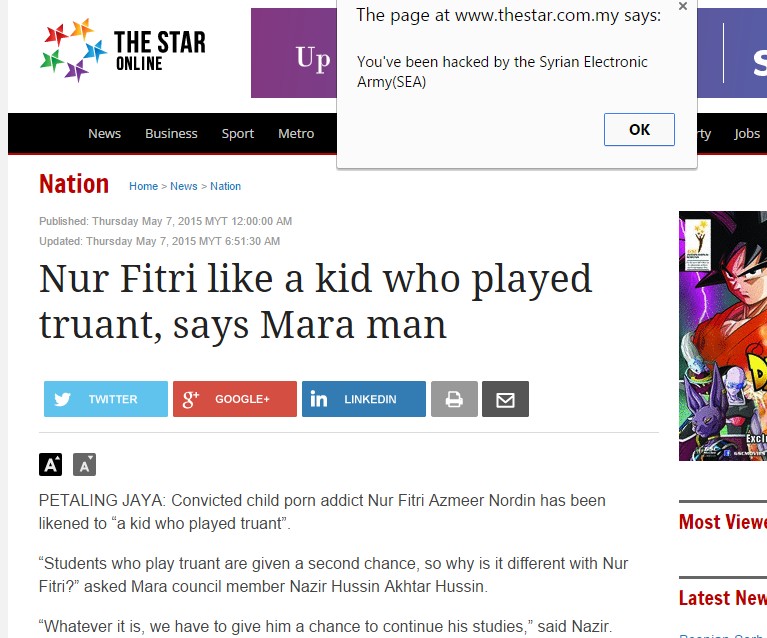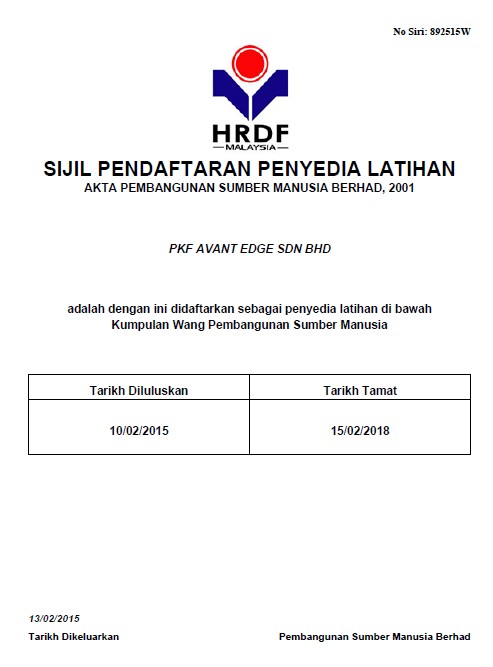
As we do our penetration testing, we have to continue to get updated on some of the latest issues affecting systems out there. SSL seems to get the mother of all shares of vulnerability, with Heartbleed and then POODLE, and now, FREAK.
FREAK is found in detail at http://cve.mitre.org/cgi-bin/cvename.cgi?name=CVE-2015-0204, which is basically a MiTM attack exploiting weak 512-bit keys. It affects OpenSSL, and upgrading to v1.0.2 fixes the flaw.
Basically, if you have weak cipher suites supported or SSL/TLS RSA-Export less than 512-bits, then get rid of it.
Resolution: We have always advocated to remove weak ciphers. Nobody really understood why, but now there is a vulnerability to include in our report.
If you need some assistance in vulnerability assessment, penetration testing or security audit to cover FREAK and other vulnerabilities, drop us an email at avantedge@pkfmalaysia.com and we’ll get a team to you.
A writeup on the recent FREAK vulnerability.
Hundreds of millions of Windows PC users are vulnerable to attacks exploiting the recently uncovered “Freak” security vulnerability, which was initially believed to only threaten mobile devices and Mac computers, Microsoft Corp warned.
News of the vulnerability surfaced on Tuesday when a group of nine security experts disclosed that ubiquitous Internet encryption technology could make devices running Apple Inc’s iOS and Mac operating systems, along with Google Inc’s Android browser vulnerable to cyber attacks.
Microsoft released a security advisory on Thursday warning customers that their PCs were also vulnerable to the “Freak” vulnerability.
The weakness could allow attacks on PCs that connect with Web servers configured to use encryption technology intentionally weakened to comply with U.S. government regulations banning exports of the strongest encryption.
If hackers are successful, they could spy on communications as well as infect PCs with malicious software, the researchers who uncovered the threat said on Tuesday.
The Washington Post on Tuesday reported that whitehouse.gov and fbi.gov were among the sites vulnerable to these attacks, but that the government had secured them. (wapo.st/18KaxIA)
Security experts said the vulnerability was relatively difficult to exploit because hackers would need to use hours of computer time to crack the encryption before launching an attack.
“I don’t think this is a terribly big issue, but only because you have to have many ducks in a row,” said Ivan Ristic, director of engineering for cybersecurity firm Qualys Inc.
That includes finding a vulnerable web server, breaking the key, finding a vulnerable PC or mobile device, then gaining access to that device.
Microsoft advised system administrators to employ a workaround to disable settings on Windows servers that allow use of the weaker encryption. It said it was investigating the threat and had not yet developed a security update that would automatically protect Windows PC users from the threat.
Apple said it had developed a software update to address the vulnerability, which would be pushed out to customers next week.
Google said it had also developed a patch, which it provided to partners that make and distribute Android devices.
“Freak” stands for Factoring RSA-EXPORT Keys.
– Source from Reuters




